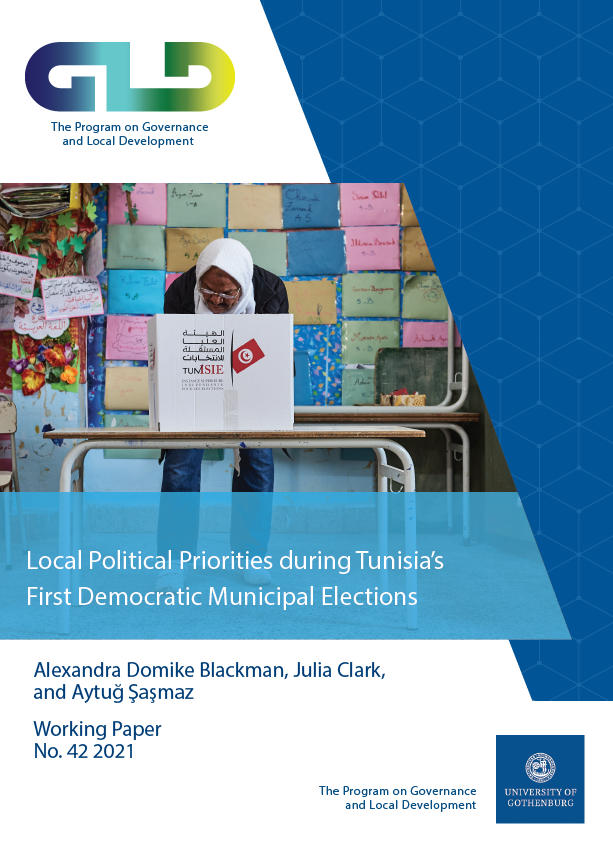No.42 Local Political Priorities during Tunisia’s First Democratic Municipal Elections
Alexandra Domike Blackman, Julia Clark, and Aytuğ Şaşmaz
Abstract
In May 2018, Tunisia held the country’s first democratic local elections to elect representatives to the country’s 350 municipal councils. Democratic consolidation depends, in part, on the development of municipal councils that can aggregate and process diverse societal interests at the local level, as well as on the ability of political candidates and politicians to represent and respond to citizens’ priorities. In this paper, we examine the local development priorities of candidates and citizens. We find that, overall, the municipal election candidates’ local priorities for governance do broadly correspond to those of citizens. For both candidates and citizens, the top four local issues are local roads, waste and the environment, local jobs, and security. Given the use of gender and age electoral quotas, we also examine how individual-level characteristics, such as gender and age, are correlated with the local development priorities of candidates and citizens. We find that women and youth do hold different priorities than their older and male counterparts, both at the citizen and candidate level. Accordingly, the quotas may improve substantive as well as descriptive representation. Finally, we examine the congruence of candidate and citizen priorities. We find a notable gap in local political priorities between candidates and citizens, particularly over employment and local security issues: citizens place a greater emphasis on employment than candidates and candidates place a greater emphasis on security. Drawing on interviews with municipal council candidates and surveys of both candidates and citizens, we argue that these differences result from the patterns of selection into political candidacy and confusion over the mandate of local councillors.
